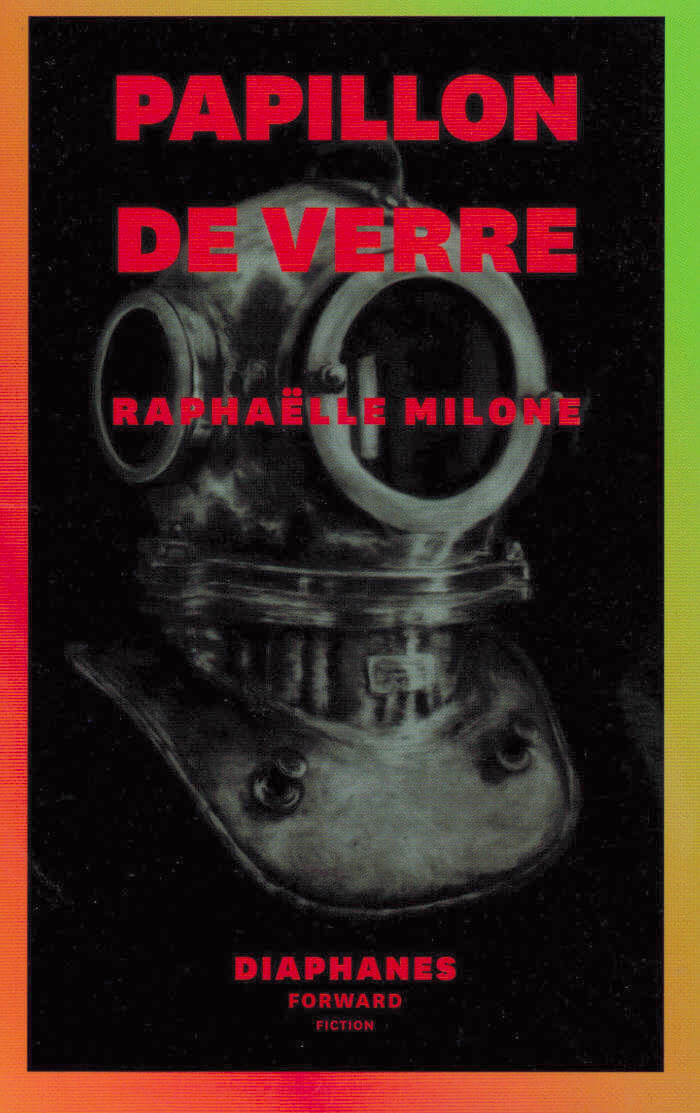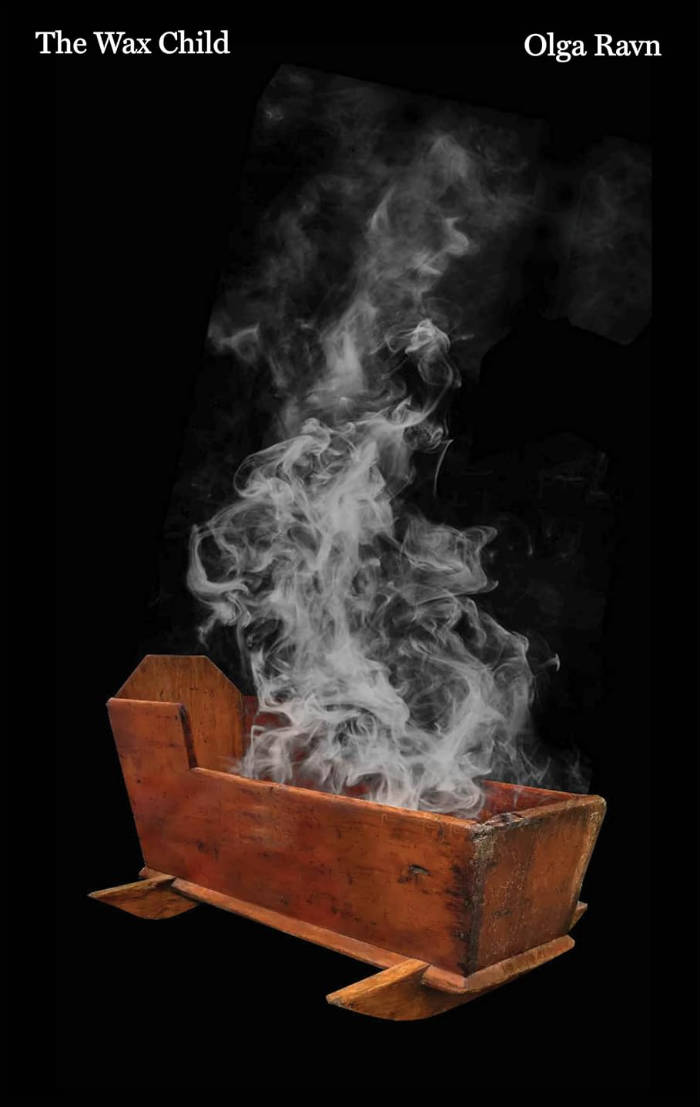
Papillon de verre
Raphaëlle Milone's first novel, a dive into the heart of desires, acclaimed by Simon Liberati as well as by Jean-Luc Nancy.
Raphaëlle Milone (born 1991 in Riom) is a French writer.
Language: French

Raphaëlle Milone's first novel, a dive into the heart of desires, acclaimed by Simon Liberati as well as by Jean-Luc Nancy.
Raphaëlle Milone (born 1991 in Riom) is a French writer.
Language: French

La sexualité comme un problème proprement philosophique de la psychanalyse.
La satisfaction de parler contient en soi une clé de la satisfaction sexuelle (et non l'inverse) – une clé de la sexualité et de ses propres contradictions. Alenka Zupančič aborde la question de la sexualité comme un problème proprement philosophique de la psychanalyse – celle de Freud et de Lacan – et non celle des praticiens cliniciens tels que décrits par Lacan « orthopédistes de l'inconscient ». Que se passe-t-il, comme l'affirme Lacan, si nous pouvons obtenir exactement la même satisfaction que le sexe par la parole, l'écriture, la peinture, la prière ou autres activités ? Il ne s'agit pas d'expliquer la satisfaction que procure la parole en indiquant son origine sexuelle, mais bien de souligner que la satisfaction de parler est elle-même sexuelle.
Alenka Zupančič soutient que la sexualité est à la limite d'un « circuit court » entre ontologie et épistémologie. La sexualité et le savoir sont structurés autour d'une négativité fondamentale qui les unit au point de l'inconscient. L'inconscient (en tant que lien avec la sexualité) est le concept d'un lien inhérent entre l'être et la connaissance dans leur négativité même.
Alenka Zupančič est une philosophe lacanienne, spécialiste renommée de Nietzsche, professeure à l'European Graduate School / EGS et à l'Université de Nova Gorica, Slovénie. Elle est également research advisor et professeure à l'Institut de philosophie du Centre de recherche de l'Académie slovène des Sciences et des Arts. Avec Slavoj Žižek et Mladen Dolar, Alenka Zupančič est l'une des figures les plus incontournables de l'Ecole de psychanalyse théorique de Ljubljana dont les travaux s'intéressent aux relations entre sexualité, ontologie et inconscient, à la critique de la théorie du sujet et à l'exploration théorique du concept lacanien du Réel.

David Graeber's interviews (with Mehdi Belhaj Kacem, Nika Dubrovsky, and Assia Turquier-Zauberman) redefine the contours of what an anarchist morality could be today.
David Graeber's influential thinking was always at odds with the liberal and left-wing mainstream. Drawing on his huge theoretical and practical experience as an ethnologist and anthropologist, activist and anarchist, Graeber and his interlocutors develop a ramified genealogy of anarchist thought and possible perspectives for 21st-century politics.
Diverging from the familiar lines of historical anarchism, and against the background of movements such as Occupy Wall Street and the Gilets Jaunes, the aim is to provide new political impulses that go beyond the usual schemata of unavoidableness. The spontaneous and swift-moving polylogue shows Graeber as a spirited, unorthodox thinker and radical activist for whom the group can always achieve more than the individual.
David Graeber (1961-2020) was an American anthropologist, anarchist, political activist, the author of several books, and a leading figure in the Occupy Wall Street movement. Until 2007 he was assistant and associate professor of anthropology at Yale University, until 2013 a reader for Social Anthropology at Goldsmiths, University of London, and until last a professor of anthropology at the London School of Economics.

In seventeenth-century Denmark, Christenze Kruckow, an unmarried noblewoman, is accused of witchcraft. She and several other women are rumored to be possessed by the Devil, who has come to them in the form of a tall headless man and gives them dark powers: they can steal people’s happiness, they have performed unchristian acts, and they can cause pestilence or even death. They are all in danger of the stake.
The Wax Child, narrated by a wax doll created by Christenze Kruckow, is an unsettling horror story about brutality and power, nature and witchcraft, set in the fragile communities of premodern Europe.
Deeply researched and steeped in visceral, atmospheric detail, The Wax Child is based on a series of real witchcraft trials that took place in Northern Jutland in the seventeenth century. Full of lush storytelling and alarmingly rich imagination, Olga Ravn weaves in quotes from original sources such as letters, magical spells and manuals, court documents, and Scandinavian grimoires.

Elizabeth in the Woolds is the product of two superimposed compositional strategies; a thematic aggregate based on notes dating back to 2008 and an epic prose narrative. Elizabeth is the device through which this simultaneous register moves. Screen writing provides a model for multiple voices. In a film script, the narrator can be the camera; there’s a machine at the centre of the story structure which figures a demand for resolution of plot; a contrario, the thematic approach (S, U, N, as electric light) obliterates chronology, and enumerates an atemporal topological figure, or the way the world is built.
(730pp., self-published first edition of 50, Kortrijk, 2021)

Once upon a time there was a shopping center just off Dam Square, a stone’s throw from the Madame Tussauds, not far from Primark, two streets across De Bijenkorf overshadowing the Magna Plaza, and just a couple doors down the Royal Palace in the middle of Amsterdam. It was the place where drag queen Tuu Lipa performed and Yeung sold eau de car engine oil. It was also where Mr. R looked for his human lover, where Inez became a millionaire, and where Yahoo launched its metaverse. “Welcome to the YAniverse,” greeted the Yahoo assistant…
Retail Vérité is the outcome of writing workshops organized by A Maior at San Serriffe. Through a blend of improvisation, larping and speed dating, the participants sketched characters and dialogues on-site.
This cohort featured Anouk Asselineau, Alva Bücking, Katherina Gorodynska, Chieri Higa, SeungJi Jo, Simon Marsiglia, Christina Ntanovasili, Young Eun Park, Ignacy Radtke, Matthew Senkowycz, Maja Simisic, Mehmet Süzgün, Simone Wegman, Bruno Zhu and others.
A Maior is a clothing and home goods store located in the outskirts of Viseu, Portugal. Since 2016, an eponymous exhibition program has taken place within the shopping environment. A Maior is managed by the staff, the artist Bruno Zhu and his family. A Maior has been featured in exhibitions at Melly, Rotterdam; Frans Hals Museum, Haarlem; Kunsthalle Freeport, Porto; X Museum, Beijing; Life Sport and BQ, both Berlin. In 2022, A Maior was the writer-in-residence at San Serriffe in Amsterdam, who commissioned Retail Verité, A Maior’s first novella.
With A Maior, Anouk Asselineau, Alva Bücking, Katherina Gorodynska, Chieri Higa, SeungJi Jo, Simon Marsiglia, Christina Ntanovasili, Young Eun Park, Ignacy Radtke, Matthew Senkowycz, Maja Simisic, Mehmet Süzgün, Simone Wegman, Bruno Zhu.
Designed by Elisabeth Klement

faits divers are the various reports in a news bulletin, miscellaneous human interest stories, theorised by Roland Barthes as ‘total’ and ‘immanent’ information.
ferrara deux (faits divers) scrolls around the discovered corpse of a talented street musician named Landau, mangled and sealed into vacuum bags in the walk-in of a modern Italian-American restaurant. Street performance is content for an attention economy, playing on authenticities and profiting from recognition.
In this debut novel, artist Ivan Cheng reconfigures recent performance texts into an approximation of a murder mystery.

This bootleg edition collects scanned copies of Monique Wittig's writing. It includes; The Lesbian Body, Les Guérillères, The Opoponax, and Lesbian Peoples: material for a dictionary— In true bootleg style, punk enough to carry the truly radical words of Wittig: scans, a little grainy, with marginalia of unknown origins. Now, we can dress ourselves in the ravishingly erotic, violent splendorous brilliance to become baby Wittigs.
This edition was assembled out of a deep love of Wittig's work by Chloe Chignell.
Monique Wittig was a French author and feminist theorist particularly interested in overcoming gender and the heterosexual contract. She published her first novel, L'opoponax, in 1964. Her second novel, Les Guérillères (1969), was a landmark in lesbian feminism.